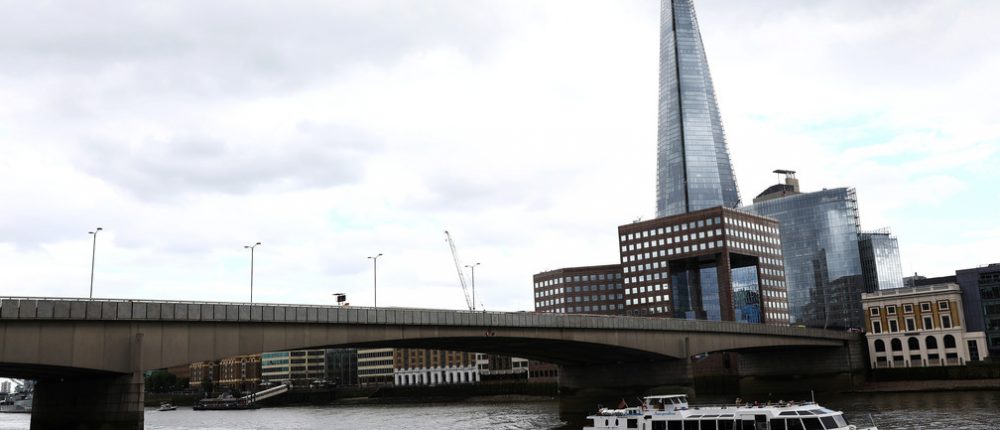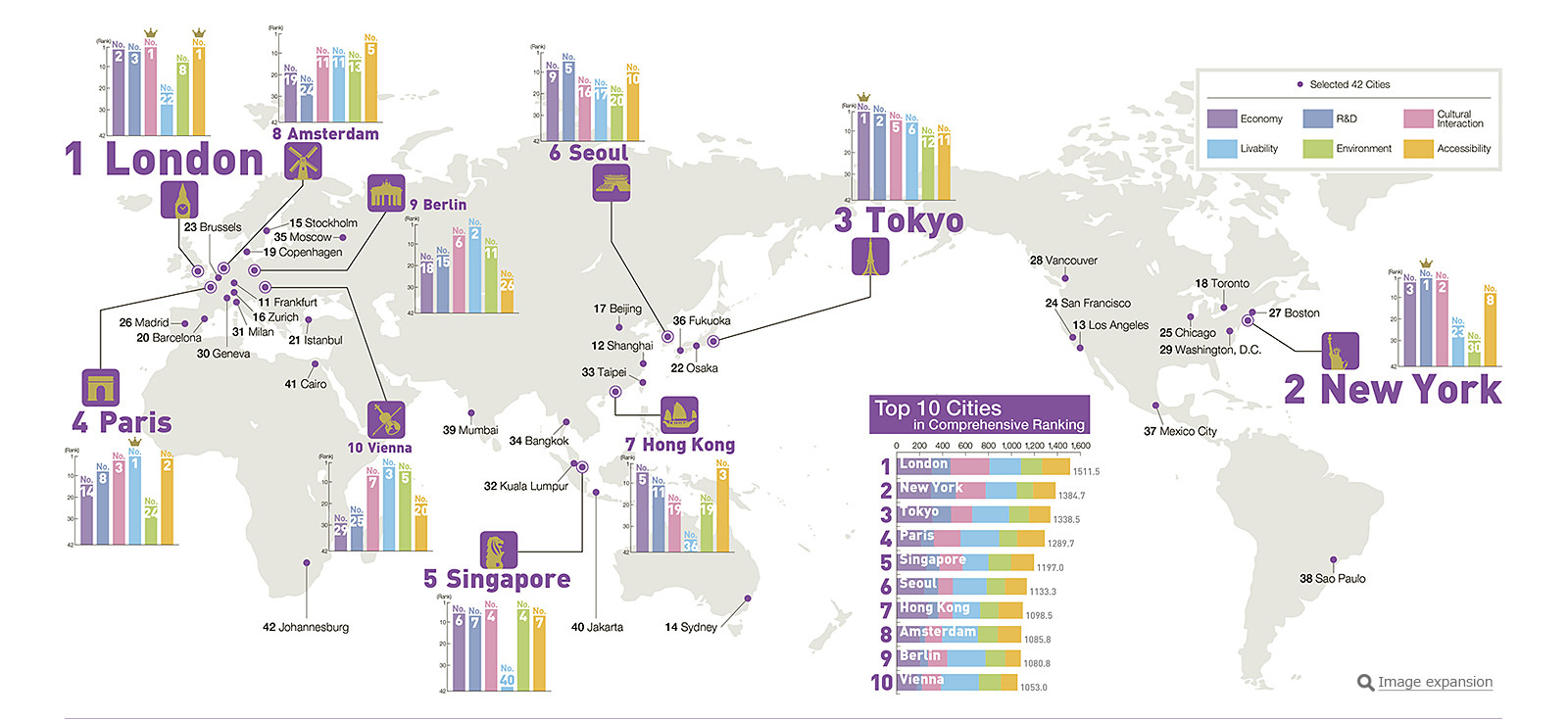This is what makes your city better
Contents |
[edit] Introduction
Our cities have now been named as the saving places of a planet in crisis. And yet we cannot decide on the principles that make for a good city. Everybody has a view, but some views are more sustainable than others.
What we desperately need is a big and general public dialogue about the principles that make for a good city. This is the basis of our project, Principles for Better Cities, led by the city of Berlin.
[edit] Broader vision is needed
We need to get beyond the current tendency to become fixated on spruiking different high-level concepts. For example, IBM, Microsoft and Big Tech have put their money – or actually other people’s money – on the smart city.
But the concept of the smart city is too often reduced to narrow technological monitoring and big data collection. McKinsey says that a good city will achieve 'smart growth'. But tell that to Brussels, Chicago, Montreal, Toronto and Vienna, global cities that are declining in size.
The Mercer group and The Economist tell us liveability is the key. However, they narrowly developed their indices for corporations seeking to decide on how much they will pay their executives for moving to less liveable cities. This raises a further question: liveable for whom?
The Rockefeller Foundation is backing the resilient city. This too is an important concept. But much of its appeal to governments is in saving resources as they seek to defer increasing climate risks through pushing responsibility back to resilient communities to self-manage their recoveries.
[edit] A common problem of definition
What actually is a good city then?
Depending on who you ask, they are sustainable cities, liveable cities and resilient cities, but they are also adapting cities and carbon-neutral cities. Or they are caring cities, inclusive cities, just cities, peaceful cities, information cities and networked cities. To confuse things further, they are also prosperous cities, learning cities and innovative cities.
Just by listing these urban forms, the problem starts to become clearer. These are just concepts with shifting or weak definitions. They mean anything 'good' and apply variously to anybody’s projections.
The second problem comes with deciding what is actually good about these different emphases.
As part of this difficulty, assigning different indicators to each of these urban forms is extraordinarily difficult. Is a city more liveable because it has a Mediterranean climate? That is what the current liveability indices would suggest.
Is a city more resilient because its 'man-made assets' are more robust? (Excuse the gender-specific language here.) That is what the core resilience literature tells us.
[Image: Mori Foundation]
[edit] Who decides?
The third problem centres on the question: Who decides what is good?
The principles and indicators tend to be decided by elite researchers working at a distance from the field, or by teams using sets of secondary data that may or may not be appropriate.
There’s not much a city can do about being close to the beach or having a Mediterranean climate.
Elite teams develop black-box indicator sets (such as liveability indexes) that remain commercial-in-confidence. The data drive the index construction without consideration of the meaning of that data. For example, one index ranking better cities in the greater Sydney region is driven by an indicator that suggests a key consideration is being closer to the beach or mountains.
The fourth problem becomes how to order and prioritise the many claims about what is good. There are so many considerations that the number of potential principles becomes overwhelming.
This happened to the New Urban Agenda, developed by the United Nations over the last two years. It has hundreds of principles, all thrown together in an incomprehensible list. Cities are understandably confused.
[edit] Towards an inclusive, holistic approach
Our Principles for Better Cities attempt to respond to all these problems. Complementary to the New Urban Agenda, Principles for Better Cities is an initiative of the World Association of Major Metropolises, which has been working with cities on a set of basic principles to guide good urban development.
This set is based on the proposition that, rather than just adding together a list of proposals from different current or immediate concerns, the principles should begin from a general framework that concerns the human condition.
We start with the idea that there should be basic principles that relate to the following basic domains of social life:
- Ecology – cities should have a deep and integrated relationship with nature.
- Economics – cities should be based on an economy organised around the social needs of all citizens.
- Politics – cities should have an enhanced emphasis on engaged and negotiated civic involvement.
- Culture – cities should actively develop ongoing processes for dealing with the uncomfortable intersections of identity and difference.
These have become the top-level principles for going deeper and deeper, elaborated across more and more specific subdomains of practice.
And here is the completely novel dimension. These principles have been and will be debated by people. None of these principles are fixed, hidden, confusing, or commercial-in-confidence. They are the outcome of open dialogue.
Please find the original article link.
Written by:
- Paul James, Professor of Globalization and Cultural Diversity, Western Sydney University
- Belinda Young, Project Officer – Ecocity, Melbourne Sustainable Society Institute, University of Melbourne
- Brendan Gleeson, Director of Melbourne Sustainable Society Institute at The University of Melbourne
- John Wiseman, Professorial Fellow, University of Melbourne
--Future of Construction 10:46, 24 Oct 2017 (BST)
[edit] Find out more
[edit] Related articles on Designing Buildings Wiki
- A brighter future for our towns and cities.
- Cities as systems - BRE Solutions for urban environments.
- Designing smart cities.
- How to make the digital revolution a success.
- Measuring the success of smart cities.
- The opportunity to build tomorrow’s cities.
- Two steps towards a more resilient world.
- Urban design.
Featured articles and news
A case study and a warning to would-be developers
Creating four dwellings for people to come home to... after half a century of doing this job, why, oh why, is it so difficult?
Reform of the fire engineering profession
Fire Engineers Advisory Panel: Authoritative Statement, reactions and next steps.
Restoration and renewal of the Palace of Westminster
A complex project of cultural significance from full decant to EMI, opportunities and a potential a way forward.
Apprenticeships and the responsibility we share
Perspectives from the CIOB President as National Apprentice Week comes to a close.
The first line of defence against rain, wind and snow.
Building Safety recap January, 2026
What we missed at the end of last year, and at the start of this...
National Apprenticeship Week 2026, 9-15 Feb
Shining a light on the positive impacts for businesses, their apprentices and the wider economy alike.
Applications and benefits of acoustic flooring
From commercial to retail.
From solid to sprung and ribbed to raised.
Strengthening industry collaboration in Hong Kong
Hong Kong Institute of Construction and The Chartered Institute of Building sign Memorandum of Understanding.
A detailed description from the experts at Cornish Lime.
IHBC planning for growth with corporate plan development
Grow with the Institute by volunteering and CP25 consultation.
Connecting ambition and action for designers and specifiers.
Electrical skills gap deepens as apprenticeship starts fall despite surging demand says ECA.
Built environment bodies deepen joint action on EDI
B.E.Inclusive initiative agree next phase of joint equity, diversity and inclusion (EDI) action plan.
Recognising culture as key to sustainable economic growth
Creative UK Provocation paper: Culture as Growth Infrastructure.
Futurebuild and UK Construction Week London Unite
Creating the UK’s Built Environment Super Event and over 25 other key partnerships.
Welsh and Scottish 2026 elections
Manifestos for the built environment for upcoming same May day elections.
Advancing BIM education with a competency framework
“We don’t need people who can just draw in 3D. We need people who can think in data.”



























